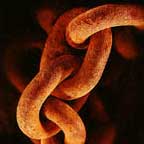 The Beed had a fit of the vapours last week on hearing what the prime minister said. The investigations on wealth, he suggested, can begin with him. But then these words have always come easily to silver-tongued politicians, especially prime ministers who every so often want to convince an eternally susceptible public that they are serious about eradicating corruption in Nepal.
The Beed had a fit of the vapours last week on hearing what the prime minister said. The investigations on wealth, he suggested, can begin with him. But then these words have always come easily to silver-tongued politicians, especially prime ministers who every so often want to convince an eternally susceptible public that they are serious about eradicating corruption in Nepal. Graft, like culture isn't a static entity. It, too, changes and evolves. Look at our own country. The advent of multiparty democracy decentralised graft and expanded its purview beyond the elite group it was restricted to in the panchayat days.
Since one of our sources of national pride is the frequent display of our ability to amass wealth and show it off in creative ways, we need to honour graft-it is the quickest way to wealth. Consider, for example, a civil servant always complaining of having to pay high tuition fees for children-in the United States. A bureaucrat like this is often known to get healthcare at the better centres in neighbouring countries, throw lavish family parties, drink only the best scotch and maintain a lifestyle that always embraces the latest, best, biggest. He will also manage to do all this on the meagre salary he is supposed to earn. But because some of these things start to seem like necessities when you see them around quite often, he can manage to persuade you that it is simply necessary for him to practice the art and craft of graft.
No one minces words or feels the slightest bit uncomfortable pointing fingers at the politicians and bureaucracy who have institutionalised graft. But here's the thing: surely they aren't the only ones responsible for perpetuating corruption and making it acceptable. Who gives them money and fancy gifts? Who pays a lot every month for buildings or vehicles owned by the family of politicians and bureaucrats? Who bridges their deficit financing? The givers, to this Beed, are as responsible as the takers.
To ever try and wean us as a nation from this awful habit, we need to also tackle the givers. Business in Nepal is dominated by trading, and the vision involved, if there is any, is short-term and short-lived. The public sector, including the government, is the largest consumer in the country and wooing these buyers has always been easy. The more the business community encourages graft the greedier they make the takers. And there is no semblance of a level playing field, no matter how serious the player-in business, people who practice graft always have an edge. Not surprisingly, this makes foreign or even serious domestic investors think twice about getting involved. There are other eyewashes, too such as the recent VDIS with its threats of impounding property. Thank heaven that is over.
The current head of the anti-graft commission, the Commission for the Abuse of Authority, has brought the institution some credibility. Now he needs to be given more powers and the authority to bite. The CIAA has been around for some time, it just needed investigation. Instead, a new judicial commission has been set up. Is investigating graft and property an area of expertise of the judiciary? Sure, its involvement adds some credibility to the process, but such investigations are a specialised discipline in themselves, and around the world anti-graft campaigns involve people, accountants, auditors, even fraud experts.
The heart of the problem is that tackling graft can never be brought down to politics or economics. It's about morals. As long as we remain addicted to short cuts, we don't have a chance in hell of even touching the graft culture. Alternatively, we could teach our children better, maybe even run adult education classes.
Readers can post their views at [email protected]



